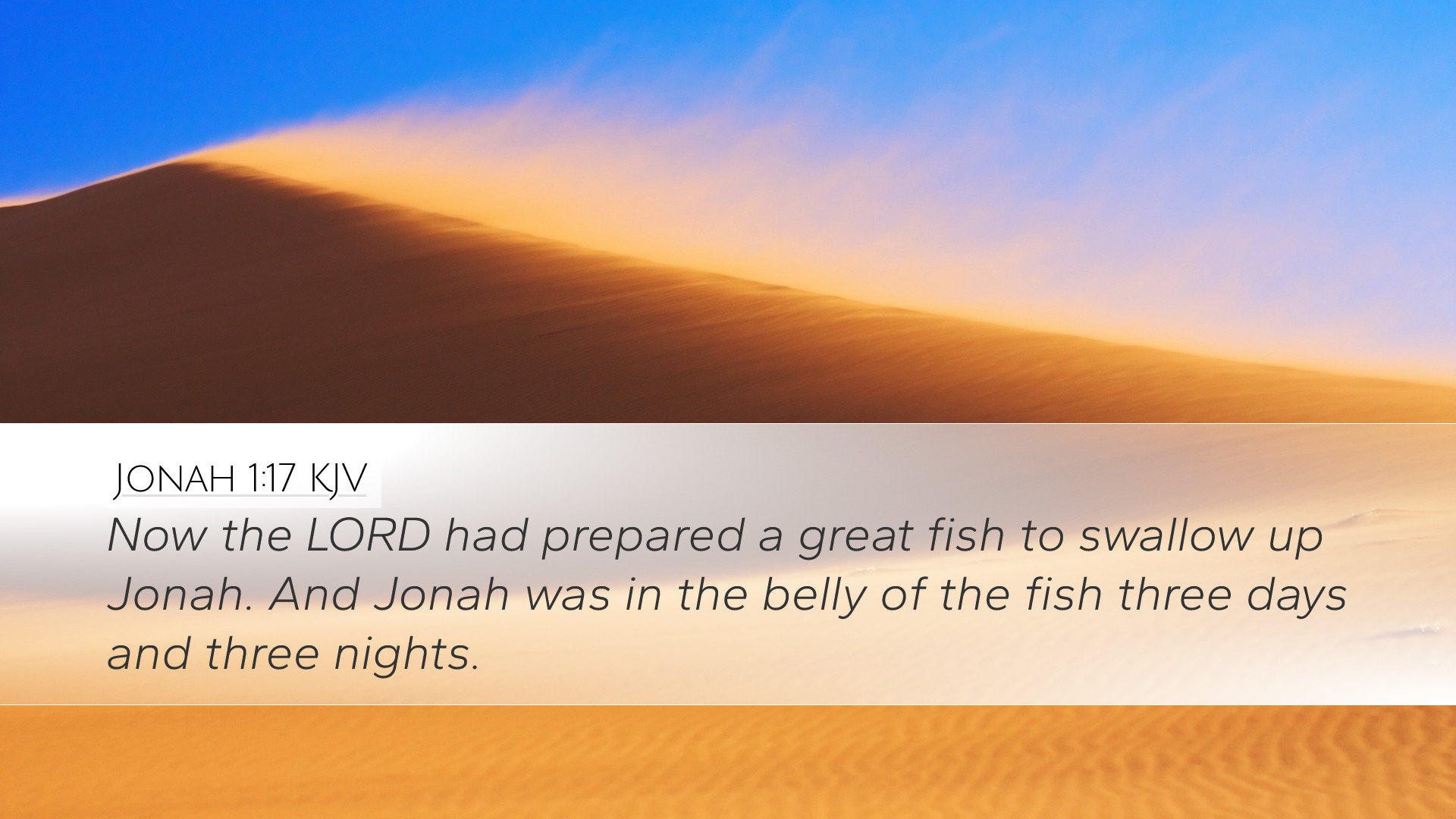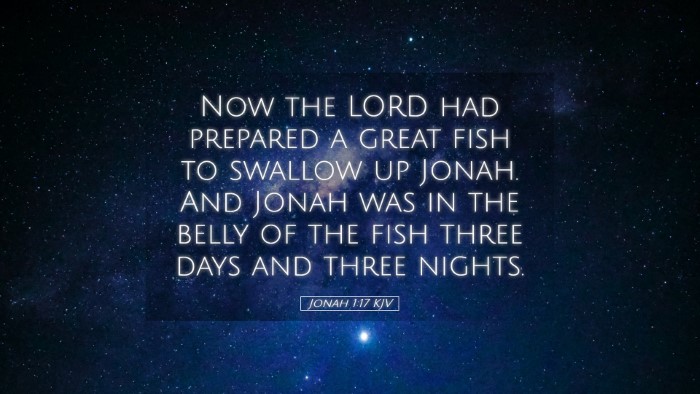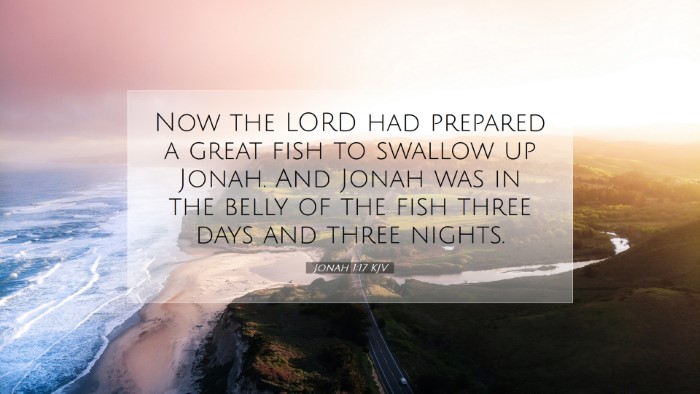Old Testament
Genesis Exodus Leviticus Numbers Deuteronomy Joshua Judges Ruth 1 Samuel 2 Samuel 1 Kings 2 Kings 1 Chronicles 2 Chronicles Ezra Nehemiah Esther Job Psalms Proverbs Ecclesiastes Song of Solomon Isaiah Jeremiah Lamentations Ezekiel Daniel Hosea Joel Amos Obadiah Jonah Micah Nahum Habakkuk Zephaniah Haggai Zechariah MalachiJonah 1:17
Jonah 1:17 KJV
Now the LORD had prepared a great fish to swallow up Jonah. And Jonah was in the belly of the fish three days and three nights.
Jonah 1:17 Bible Commentary
Bible Verse Commentary: Jonah 1:17
Verse: "Now the LORD had prepared a great fish to swallow up Jonah. And Jonah was in the belly of the fish three days and three nights." (Jonah 1:17, KJV)
Introduction
Jonah 1:17 represents a pivotal moment in the Book of Jonah, serving as a divine intervention in the life of the prophet. This verse reveals God's sovereign control over creation and His relentless pursuit of His mission and His messengers. Various public domain commentaries offer profound insights into the theological significance and the implications of Jonah's experience, which serve as critical points for pastoral, theological, and scholarly reflection.
The Sovereignty of God
Matthew Henry emphasizes the theme of God's sovereignty in this verse, noting that "the LORD had prepared a great fish." This preparation illustrates God's foreknowledge and providence. It was not mere chance that a fish was present; rather, it was a deliberate act orchestrated by God to fulfill His purposes. This reminds readers of the omnipotence of God, who governs the affairs of creation and uses even the most extraordinary means to achieve His will.
The Great Fish
Albert Barnes elaborates on the nature of the "great fish," pointing out that while interpretations vary regarding its identity, whether a whale or another sea creature, the specifics remain secondary to the theological implications. The fish serves as a vehicle of both judgment and mercy for Jonah. In swallowing Jonah, it represents a temporary judgment for his disobedience, while simultaneously providing a means of salvation from drowning, showcasing God's mercy amidst judgment.
Jonah's Condition
According to Adam Clarke, Jonah's time in the belly of the fish was a period of deep reflection and transformation. Jonah finds himself in an unusual and dire situation, which symbolizes the consequences of fleeing from God's command. This experience is not merely punitive but serves as a transformative process. It allows for introspection, humbling Jonah and preparing him for his eventual task in Nineveh. Clarke posits that this period relates closely to themes of repentance and restoration, which are central to the believer's journey.
Theological Implications
- Divine Discipline: The account highlights God's use of corrective measures to guide His servants. Just as Jonah was prepared for a change in his heart during his confinement in the fish, believers too are called to seek God's guidance in their times of struggle.
- God's Mercy: Even in Jonah's rebellion, God did not abandon him. The fish represents God's mercy, which offers a second chance. This speaks volumes about the nature of God, who desires redemption over retribution.
- Prophetic Foreshadowing: Jonah's three days and nights in the fish can also be seen as a foreshadowing of Christ's death and resurrection. This typological interpretation invites deeper theological reflection on the nature of sacrifice and salvation.
Conclusion
Jonah 1:17 serves as a profound exploration of God's sovereignty, mercy, and the transformative power of repentance. The insights from these commentaries invite pastors, students, and scholars to reflect on their own lives, recognizing that God may use various circumstances to draw His children back to Him. As they study this verse, they are encouraged to embrace God's guiding hand, just as Jonah eventually accepted his calling, leading to the fulfillment of God's redemption plan for Nineveh.


